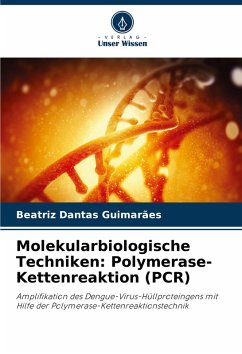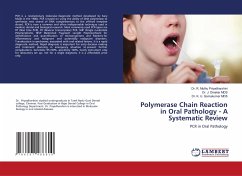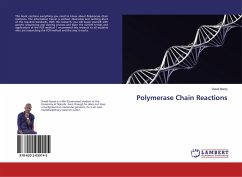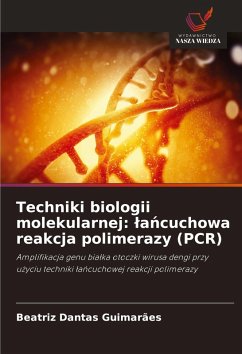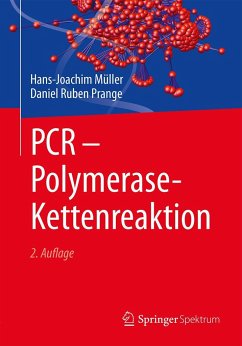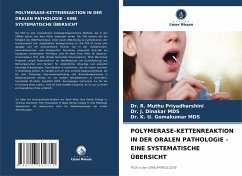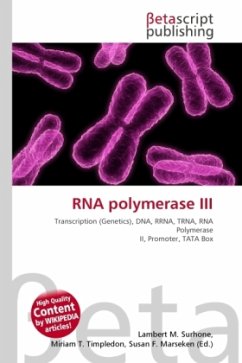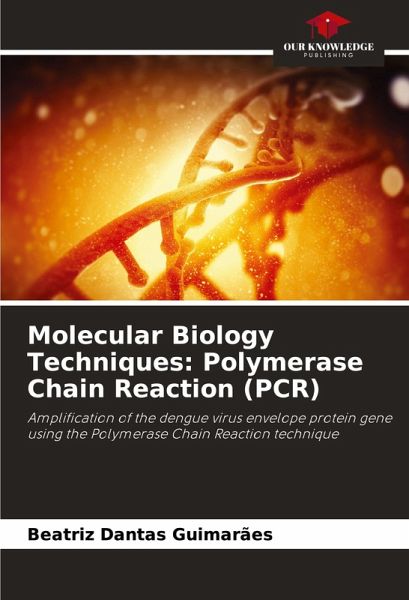
Molecular Biology Techniques: Polymerase Chain Reaction (PCR)
Amplification of the dengue virus envelope protein gene using the Polymerase Chain Reaction technique
Versandkostenfrei!
Versandfertig in 6-10 Tagen
24,99 €
inkl. MwSt.

PAYBACK Punkte
12 °P sammeln!
The polymerase chain reaction (PCR) has as its main application the possibility of amplifying a segment of DNA, producing millions of copies of the selected segment. Gene cloning aims to introduce a selected gene into bacteria that are identical to each other, and this technique requires the presence of a cloning vector capable of amplifying a fragment of DNA cloned into them. The E gene of the dengue virus (DENV) is the most widely used for molecular studies due to the importance of the E protein. The aim of this study is to establish techniques for amplifying the E gene of DENV-2 and DENV-4....
The polymerase chain reaction (PCR) has as its main application the possibility of amplifying a segment of DNA, producing millions of copies of the selected segment. Gene cloning aims to introduce a selected gene into bacteria that are identical to each other, and this technique requires the presence of a cloning vector capable of amplifying a fragment of DNA cloned into them. The E gene of the dengue virus (DENV) is the most widely used for molecular studies due to the importance of the E protein. The aim of this study is to establish techniques for amplifying the E gene of DENV-2 and DENV-4. The DNA molecule was obtained from FIOCRUZ in Recife; the primers were selected in such a way as to encompass the E gene. PCR amplification was satisfactorily established for the E gene. Once determined, these techniques are essential in the stages of obtaining recombinant DNA in the process of cloning and expressing the dengue E protein.







